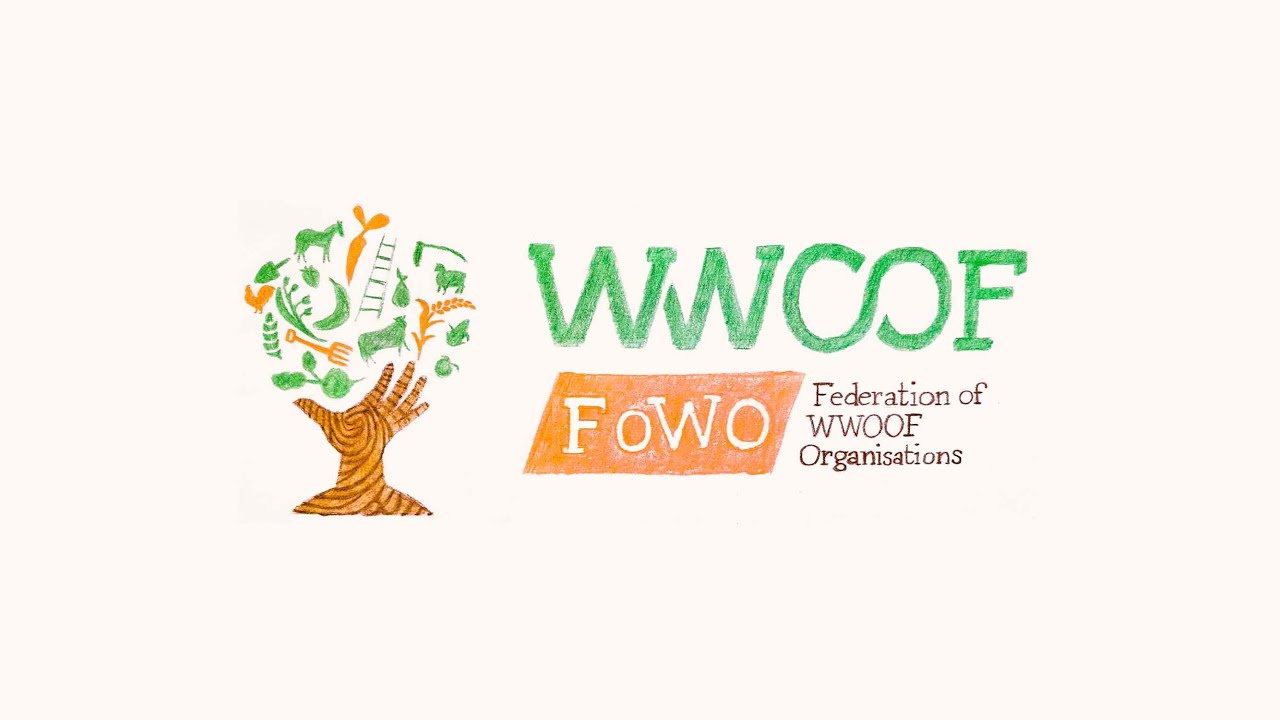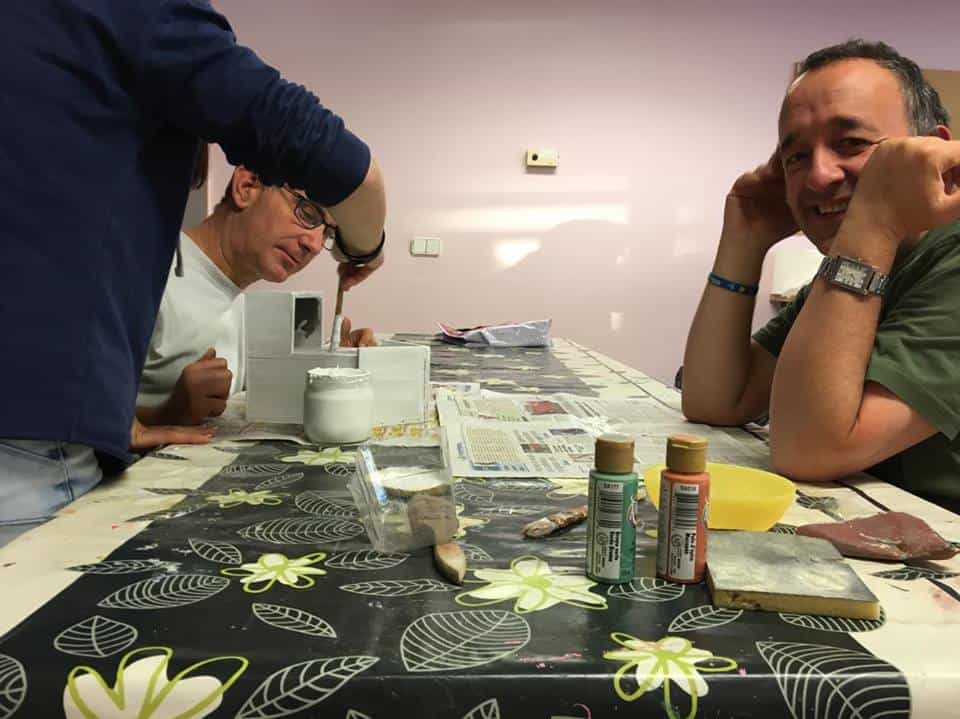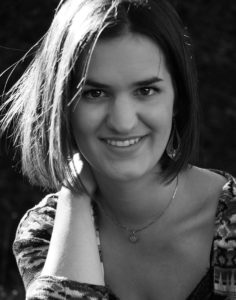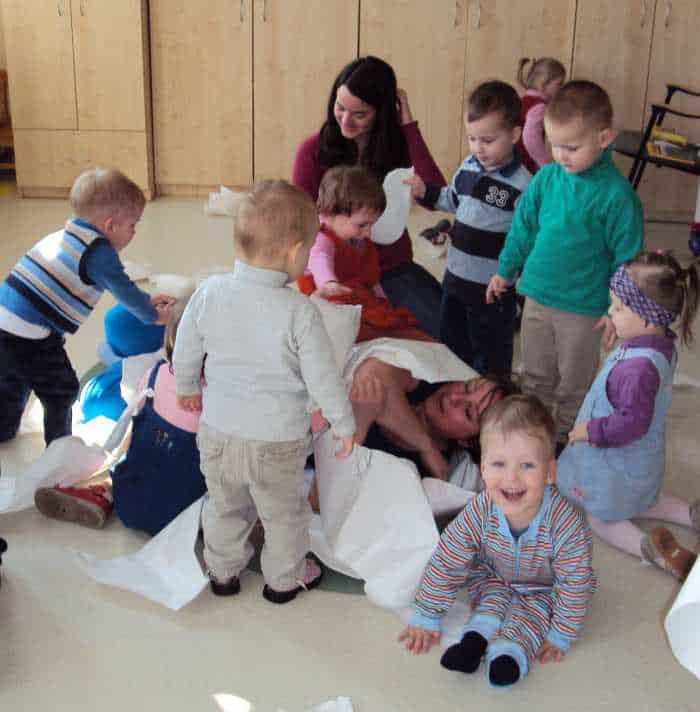„Lust auf WWOOFEN?“
Hanna Grossauer about her work on organic farms
Ich schreibe Kathi „Wir sind WWOOFen in Portugal!“ auf den Fuß. Und jetzt fühl ich es so richtig! Wir sind unterwegs, wir reisen, entdecken, spüren, riechen…
„Letzten Sommer war ich in Portugal und Frankreich WWOOFEN, das war so toll! Eine ganz besondere Erfahrung, das solltest du unbedingt auch mal machen!“ Was warst du? WWOOFEN? Was soll denn das bedeuten? —
The WWOOF organization was founded in England in 1971. Sue Coppard, a London secretary, felt a strong need to be able to get out of the city and breathe in the country air, even if she lived in the city. She assumed that many city dwellers might feel the same way as she did and eventually launched the "Working Weekends On Organic Farms" experiment. People from the city could help out on an organic farm for a weekend in return for accommodation, food and lots of valuable knowledge. The idea was a great success - more and more volunteers became enthusiastic about working on the land, with animals and plants - as a balance to their everyday life in the city and so more and more farms were happy to welcome helping hands.
Today, the abbreviation WWOOF stands for "World Wide Opportunities On Organic Farms" and is now represented in over 100 countries worldwide, including Australia, New Zealand, China, Ghana and Hawaii, with more than 6000 organic farms.
What do WWOOFERs do?
Zu WWOOFen bedeutet, eigene Fähigkeiten und Ideen, gelerntes Wissen und auch körperliche Arbeit einzusetzen und damit hauptsächlich Leute von biologisch wirtschaftenden Bauernhöfen zu unterstützen. „WWOOF ist ein Austausch zwischen – City und Land – Jung und Alt, – verschiedenen Ländern, Sprachen und Kulturen.“ Es ist dabei nicht notwendig, landwirtschaftliches oder gärtnerisches Wissen mitzubringen, jede und jeder tut, was sie oder er kann. Die Arbeitszeiten variieren je nach Hof zwischen 4- 6 Stunden pro Tag, die Wochenenden sind meistens frei, und können genutzt werden, um die Gegend zu erkunden. WWOOFerInnen werden für ihre Arbeit nicht bezahlt – zumindest nicht mit Geld. Dafür bekommen sie Essen und einen Schlafplatz, und außerdem jede Menge Wissen und Bereicherungen.
My friend Kathi and I tried WWOOFING in the early summer of 2009. We wanted to travel around Portugal, Spain and France for three months, but not just from city to city and from one sight to the next. We wanted to really get to know the countries, people and landscapes and stay in one place for longer than just a few days.
We plan to stay at four different farms for about two weeks each and visit a few towns and cities in between. We sign up for an annual membership via the WWOOF Portugal website, which gives us access to descriptions and contact details for all the farms in Portugal. Before we set off, we send e-mails to a few farms that sound interesting and ask whether they could use two WWOOFers over the next two weeks. Our journey starts in Lisbon - we drive further and further inland on winding roads in a rickety bus until we arrive at our first farm in the sleepy little town of Aradas.
In Portugal, there are many so-called "dropouts", people who decide to completely change their lives, quit their jobs, which may have been the main part of their lives before, and move to another country to try something new. Andrea from England and Jeroem from Holland are such dropouts. They have bought a piece of land with an old stone house in the interior of Portugal for themselves and their children Dani and Roan, with the aim of living here as self-sufficient farmers. The house needs to be completely renovated and there are no water or electricity pipes yet. Jeroem is a carpenter and makes all the doors and window frames himself. In the meantime, the family still lives in a rented house in the village, from where we walk along a forest path to the farm every morning.
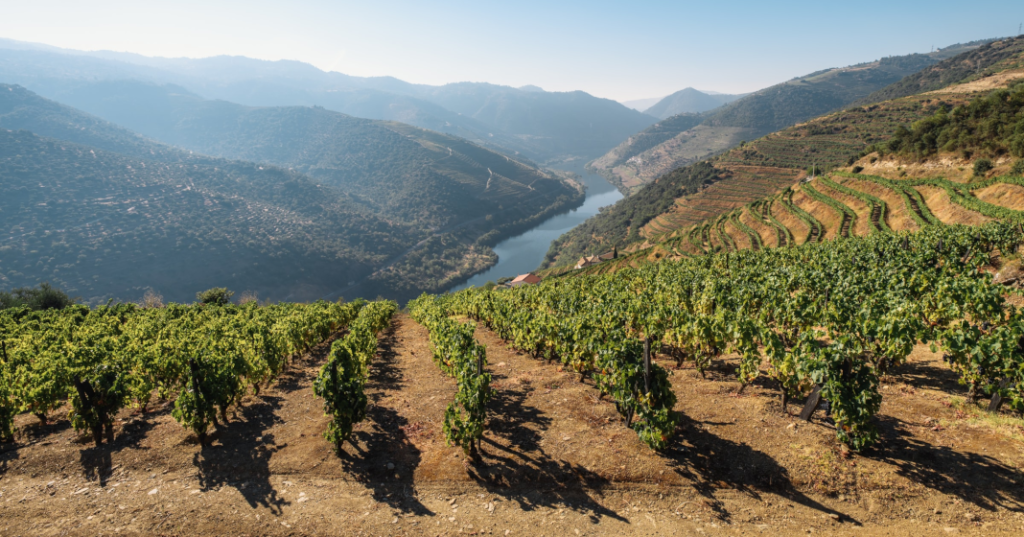
There is plenty to do here, Jeroem and Andrea are full of ideas and projects, which is why they are happy to take on WWOOFers as support. During our two weeks on the farm, people come and go, at one point we count 12 heads at dinner! A couple from America, two Englishmen, one from Brazil, an Australian woman, the family of four and the two of us. Barbara from Australia is 65 and in Europe for the first time. Her daughter told her about WWOOFing and Barbara is excited to get to know Europe this way. Chris from England has been WWOOFing for several months now, riding his motorcycle from farm to farm. Jeroem has already planted small fruit trees and Andrea has created some vegetable patches that are waiting to be planted. We separate countless tomato, cucumber and lettuce plants that WWOOFers have sown before us and plant them out in the beds. We sow spinach, beet, corn, coriander, pumpkin, nasturtium, rhubarb, leek and fennel. It's not so easy to understand all the English vegetable terms straight away, but when Andrea explains to us what is cooked from the vegetables and what they taste like, we know what will soon sprout from the soil. We water, weed, collect grass and dandelions for the chickens and rabbits or stay indoors when it rains and look after little Roan while Andrea goes shopping in the village.
From the field, which we spend a few days clearing of weeds so that we can plant the lettuce, we can see some rocks in the distance. The landscape with its many hills makes it difficult to estimate distances, but we decide to climb the rocks next weekend. The path leads us along a stream with many small waterfalls, lined with yellow-flowering broom bushes and through the village of Unhais da Velho, where time seems to have stood still. Narrow alleyways, small dilapidated stone houses... apart from a few elderly villagers who meet on the street to chat and observe, the village is very deserted. Then we make our way to the summit, passing an elderly woman who talks to us. Too bad we don't speak Portuguese, we'd love to chat with her!
Von oben haben wir einen tollen Ausblick über die Gegend- die vielen grünen Hügel, Windräder, Wald und kleine Dörfer dazwischen. Ein Gefühl von Unendlichkeit überkommt mich, hinter all diesen Hügeln warten immer noch mehr Hügel, Berge, Flüsse, Täler, Ozeane. Ein angenehmes Gefühl zu wissen, dass es hinter dem Horizont immer noch etwas Neues gibt..
An unserem letzten Abend in Aradas kochen wir Kaiserschmarrn für die ganze Gruppe- wir haben versprochen, etwas typisch Österreichisches zu machen.
After two weeks in the rather cool and repeatedly rainy center of Portugal, we are drawn to the sunny south. After a few days WWOOF break in beautiful Porto, we head for the Algarve, in the south of Portugal. Nadine and Calvin, a couple from England, have founded the tipi village "Tipi Algarve" here near Portimão. The tipis and a yurt are rented out to holidaymakers, who can then drive to the beach or explore the area from here. Kathi and I are given our own little cottage as accommodation. In the mornings, we clean the tipis, the camping kitchens and the toilet and shower facilities, paint garden furniture and fish leaves out of the pool. It's not really a farm here, but there is a small vegetable garden. We plant an onion and sweet potato spiral and even learn to drive a tractor to transport fresh soil to the beds, as the ground is very dry and stony. Calvin wants to expand the vegetable garden to stop buying vegetables and perhaps even supply local markets with vegetables. Everything takes time!
We only work here in the morning, around lunchtime and in the afternoon it gets far too hot to do any work outside. Before Calvin came to Portugal, he was a chef in England and he treats us to his delicacies every day at lunchtime: There's home-baked bread, roasted tomatoes with olives and sheep's cheese, fresh salad from the garden,...
Schließlich geht auch hier die Zeit zu Ende, wir fahren weiter zu einer anderen Farm in der Algarve. Der 68-jährige Jean- Jaques aus Belgien lebt seit 20 Jahren in Portugal. Er hat sich in der Nähe von Fuseta ein großes Stück Land gekauft, und vermietet im Sommer sehr liebevoll und aufwändig renovierte Appartements an TouristInnen. Außerdem gibt es eine Orangen-Grapefruit-Zitronen-Plantage, dazwischen wachsen Palmen und einige Affenbrot- und Feigenbäume. Wir haben hier nicht sehr viel zu tun, wir helfen aber, wo Arbeit anfällt!! Stutzen Rosmarinhecken, jäten Unkraut im Palmengarten, pflanzen Aloe Vera neben dem Pool, und schneiden die Obstbäume.
Nach sehr entspannten zwei Wochen wollen wir noch einmal so richtig arbeiten, und auch gerne das WWOOFen in einem anderen Land ausprobieren. Wir reisen weiter in Richtung Südfrankreich, zur „Ferme des Courmettes“, einer Ziegenfarm in den Bergen auf 800m, nicht weit von Nizza. Bruno, der Schäfer, wohnt hier seit 28 Jahren mit seinem Sohn Valentin und seinen Ziegen. Noch eine WWOOFerin, Mélodie, ist mit uns gemeinsam hier, und zeigt uns unsere Arbeiten. Kathi und ich sind hier in einem Container untergebracht, der als Wohn-und Schlafraum eingerichtet ist. Jeden Morgen um 8 Uhr holen wir die 80 Ziegen von der Weide, die dort die Nacht verbringen. Die Hirtenhunde Bulle und Craige helfen uns die Ziegen in den Stall zu treiben, dann werden immer 12 gleichzeitig mit den Melkmaschinen gemolken und bekommen gleichzeitig ihr Futter. Die frische Milch wird direkt in die Fromagerie, die Käserei, geleitet und später von uns zu Käse verarbeitet.
What we learn here, and above all what we are entrusted with - after a few days, the two of us are alone in the stables, while Bruno delivers the finished cheese to local markets and restaurants.
It feels good to take on responsibility and to realize that you are really needed and can help. There are so many great people in this world with exciting projects and ideas that you can learn a lot from. And they are very happy about people who want to accompany them a little.
More information:
You can also WWOOF in Austria! You can find information on the Austrian Wwoof website .
Or are you drawn a little further out into the world? On these pages , the countries are listed clearly according to continent.
